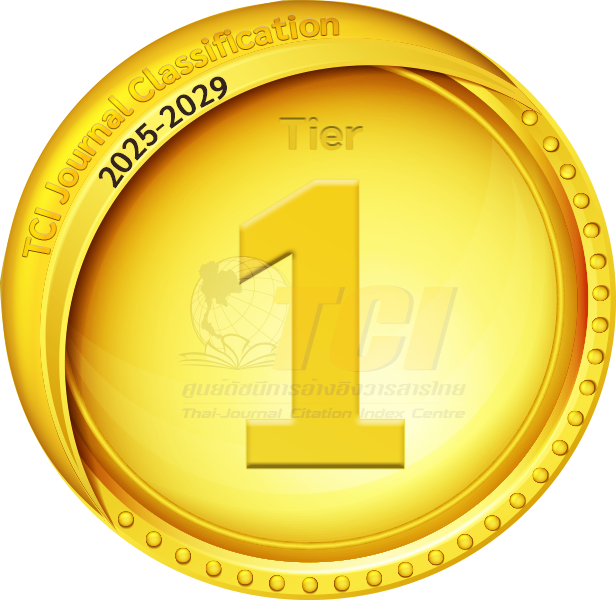ULTRASOUND AND NUCLEAR SCAN IN THE DIAGNOSIS OF BILIARY ATRESIA IN PERSISTENTLY JAUNDICED INFANTS
Abstract
This review of cases aims to evaluate the sensitivity and specificity of ultra- sonography (US) and hepatobiliary scintigraphy (HBS) in the diagnosis of biliary atre- sia in persistently jaundiced infants. Thirty-four (34) patients (age 1 to 11 months, 11 females and 23 males) underwent surgery for correction of biliary atresia diagnosed by ultrasound and/or hepatobiliary scintigraphy between January 1981 to December 1995 at the Clinical Division of Santo Tomas University Hospital. All patients had tissue sent for histopathological examination. There were 26 patients with both ultrasound and scintigraphic studies, six (6) with scintigraphic studies only, and one (1) with ultrasound only. Using Fisher's Exact Probability Test, hepatobiliary scintigraphy showed a better sensitivity (83.3%) than ultrasound (68.8%) (p< 0.05). However, ultrasound has a better positive predictive value (84.6%) compared to hepatobiliary scintigraphy (75%) in the diagnosis of biliary atresia in persistently jaundiced infants. The study recommends that ultrasound should be used as the initial imaging modality of choice in evaluating biliary atresia in persistently jaundiced infants.
Downloads
Metrics
References
Karrer FM, Lilly JR, Hall RJ. Biliary Tract Disorders and Portal Hypertension. Pedi- atric Surgery. 2nd ed. 1993.
Park W, Kim S, Park K, Choi S, Lee H, and Kwon KY. Electron microscopic study of the liver with biliary atresia and neona- tal hepatitis. Journal of Pediatric Surgery 31: 367-374,1996.
Fleischner AC, James, Jr EA. Diagnostic Sonography: Principles and Clinical Ap- plications. c 1989.
Gates G, Sinatra F, and Thomas D. Cholestatic syndromes in infancy and childhood. American Journal of Roent- genology 134:1141, 1980.
Donaldson J, Gore, Levine and Lauffer. Textbook of Gastrointestinal Radiology. WB Saunders 1st ed., 1994.
Lee H, Taegu K, Kim JS, Woo S, Choi SO, Park WH, Suh S. Triangular cord sign: a diagnostic sonographic feature of biliary atresia. Journal of Pediatric Surgery 1996.
Torres, Jr JF, and Obaldo JM. Radionuclide studies of the hepatobiliary system and their significance in clinical practice. Un- published, 1995.
Majd M, Reba RC, Altman RP. Hepatobiliary scintigraphy with Tc99m- PIPIDA in the evaluation of neonatal jaun- dice. Pediatrics 67: 140-145, 1981.
Oh M, Hobeldin M, Chen T, Thomas DW, Atkinson JB. The Kasai procedure in the treatment of biliary atresia. Journal of Pediatric Surgery 30: 1077-1081, 1995.
Torrisi JM, Haller JO, Velcek FT. Chole-dochal cyst and biliary atresia in the neonate: Imaging findings in five cases. American Journal of Radiology 155:1273- 1276, 1990.
Parashar K, Tarlow MJ, McCrae MA. Ex- perimental reovirus type 3-induced mu- rine biliary tract disease. Journal of Pedi- atric Surgery 27: 843-847, 1992.
Kohno M, Kitatani H, Wada H, Kajimoto T, Matuno H, Tanino M, Nakagawa T, Takarada A. Hepatocellular carcinoma complicating biliary cirrhosis caused by biliary atresia: Report of a case. Journal of Pediatric Surgery 30: 1713-1715, 1995.
Ohya T, Fujimoto T, Shimomura H, and Miyano T. Degeneration of intrahepatic bile duct with lymphocyte infiltration into biliary epithelial cells in biliary atresia. Journal of Pediatric Surgery 30: 515-518, 1995.
Tan CE, Driver M, Howard ER, Moscoso GJ. Extrahepatic biliary atresia: a first tri- mester event? Journal of Pediatric Surgery 29: 1994.
Wagner H, Szabo Z, Buchanan J. Prin ciples of Nuclear Medicine. 2 ed. 1995.
Klingensmith III WC, Spitzer V, Fritzberg A, Kuni CC. The normal fasting and post- prandial diisopropyl-IDA Tc 99m Hepatobiliary Study. Radiology. 141: 771- 776, 1981.
Fink-Bennett D, Balon H, Tsai T. Mor- phine-augmented cholescintigraphy: Its efficacy in detecting acute cholecystitis. Journal of Nuclear Medicine 32: 1231- 1233, 1991.
Downloads
Published
How to Cite
Issue
Section
License
Copyright (c) 2023 The ASEAN Journal of Radiology

This work is licensed under a Creative Commons Attribution-NonCommercial-NoDerivatives 4.0 International License.
Disclosure Forms and Copyright Agreements
All authors listed on the manuscript must complete both the electronic copyright agreement. (in the case of acceptance)













